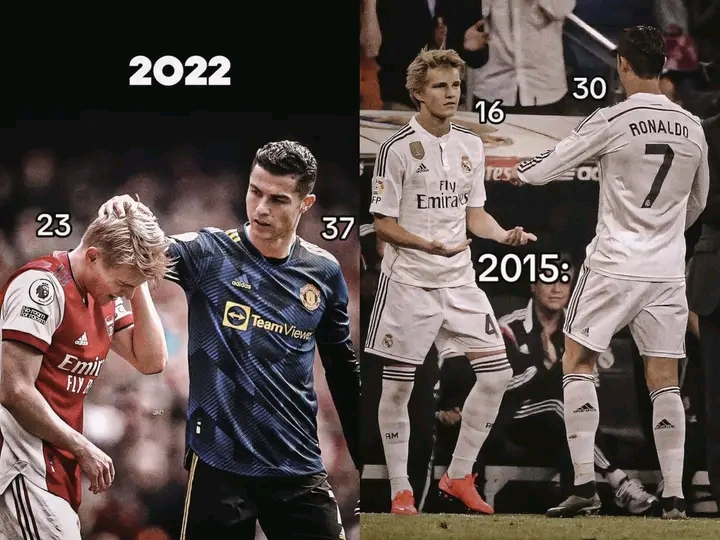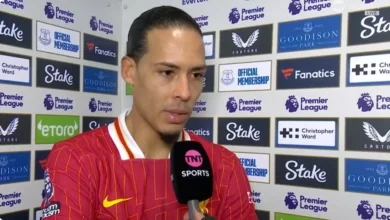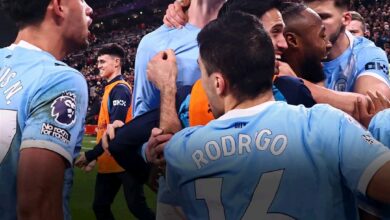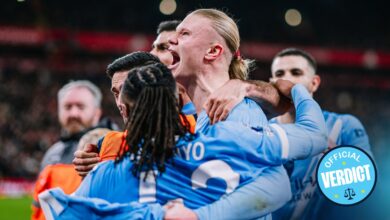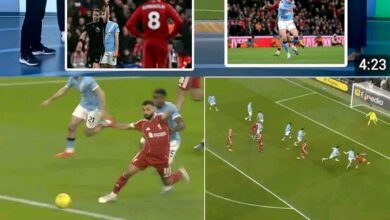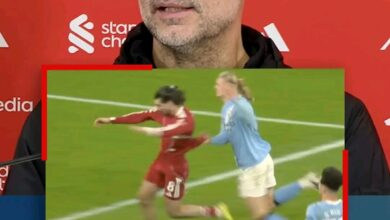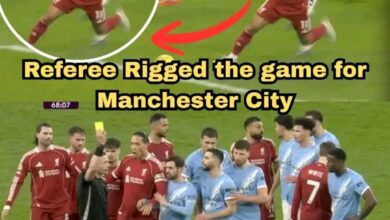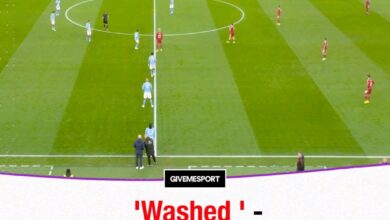Mikel Arteta press conference – Arsenal boss on Liverpool, Saka, Odegaard and Hincapie
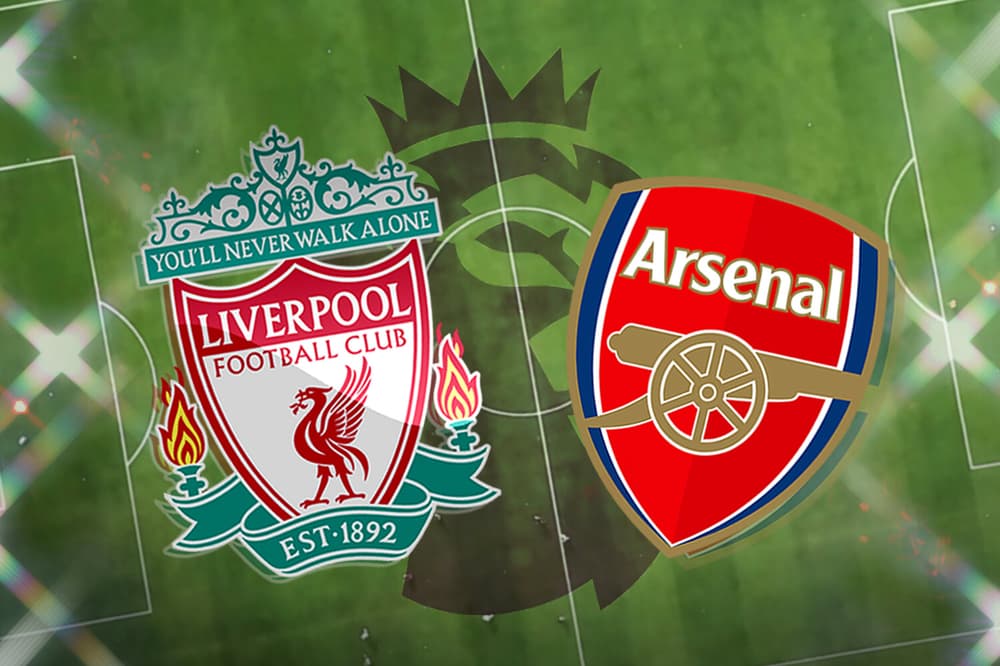
It was one of those afternoons when the spotlight fell on Mikel Arteta, the man tasked with leading Arsenal into yet another season of high expectations, high pressure, and high drama. The Premier League had barely begun, but already the narrative was beginning to shape itself: Arsenal, unbeaten, flawless in their first two games, with six points and two clean sheets, traveling to the one ground that has haunted them more than any other in recent years—Anfield. This was not just any fixture. It was Liverpool away, with Arne Slot already showing signs that he was prepared to bring a new wave of fire and energy into his side. Two giants colliding early in the season, and already whispers were emerging: could this be the game that tells us who really has the heart to fight for the Premier League crown?
Arteta sat down in front of the media, his face calm, his body language betraying little of the storm swirling around him. Injuries had ripped into his squad, once again reminding him that football is as much about survival as it is about tactics and technique. Bukayo Saka, the jewel of Arsenal’s crown, was sidelined with a hamstring issue. Martin Odegaard, the captain, the architect of so much Arsenal creativity, carried a shoulder problem and was fighting against time to even be in contention. Kai Havertz had already gone under the knife for knee surgery and would miss weeks. Ben White and Leandro Trossard hadn’t been seen in training either. The list felt long, too long for a manager whose team was about to walk into the Anfield cauldron.
Yet Arteta’s message was clear: there could be no excuses. Arsenal had come far under him, and he wanted that progress to show on Sunday. “It’s a very important one,” he said with steel in his voice when asked about the trip to Liverpool. “We want to continue. We go to these stadiums, with these types of atmospheres, and we want to come away with a win.”
It sounded brave, it sounded bold, but Arteta knew what awaited. The last time Arsenal had walked away victorious at Anfield in the league, some of his younger players hadn’t even started school. For years, Liverpool had made their home a fortress, a place where Arsenal had endured humiliation after humiliation, seeing four goals, five goals, even worse, fly past them. But now, there was a sense of belief, that this was not the Arsenal of old. This was a team who had pushed Manchester City to the very brink last season. A team that believed they could walk into any stadium and fight for three points.
But belief is one thing, and the reality of a depleted squad is another. Saka’s absence in particular loomed large. Arteta admitted the winger would be out for weeks but avoided any talk of surgery. “It’s not as bad as the previous one,” he said. “It was an action that required full power from him, he had to change direction, and he felt something.” He was quick to reassure supporters, but everyone in that room knew Arsenal without Saka were a very different animal. The 22-year-old carried not just goals and assists but the spirit of the side, a relentless drive that lifted the team in tough moments. To walk into Anfield without him was like going into battle missing your sword.
The questions continued to flow. What about Odegaard? Could he make it? Arteta’s face tightened. “We don’t know yet. He hasn’t trained yet. If he does, it will be tomorrow. There is an injury there, but if everything goes well and he can cope with it, maybe.” Maybe. A word that carried both hope and fear. For Arsenal fans, hearing Odegaard’s availability described in such uncertain terms was another gut punch.
Then came Kai Havertz. Arteta’s tone grew more sombre. “It will be weeks, but hopefully not months. It’s very sad. This is our profession, and now we lose another player for many weeks.” For a squad already stretched, this was no small blow. Havertz might not have been universally loved among Arsenal supporters, but he brought versatility, intelligence, and a physical presence that would be missed.
And yet, in the middle of the injury gloom, there were flickers of light. Arteta spoke warmly about Eze, the new signing who was beginning to win hearts with his energy and aura. “Very special energy, very special aura around him,” Arteta said, clearly impressed with how quickly the player had adapted. “He’s gathered a lot of information on that pitch. Yes, very impressed with him.”
But the big story beyond Liverpool was the transfer market. With deadline day fast approaching, the press wanted answers. Jakub Kiwior looked set to leave, a move to Porto edging closer, with Arsenal prepared to cash in on a defender who had never truly cemented his place. The fee, around £23.4 million, was good business, but only if Arsenal could secure a replacement. Enter Piero Hincapie, the Ecuadorian defender from Bayer Leverkusen. Reports suggested talks were advancing, and Arteta was asked directly. He smiled, the same way he always does when transfer speculation arises. “You know the answer,” he said, almost playfully. “I cannot talk about players that are not part of the squad.” It was neither a confirmation nor a denial, but everyone in the room knew something was brewing.
This was a delicate balance for Arteta. The pressure to strengthen his squad was obvious, especially with injuries biting, but he could not let distractions take his focus away from the monumental task on Sunday. Liverpool under Arne Slot had started with fire. Six goals scored, four conceded, but a style of play that suggested chaos, energy, and unpredictability. They were not yet the machine Jürgen Klopp had built, but they had individual brilliance in abundance. Arteta acknowledged this. “They have individual characteristics that change and mould a team,” he said. “The outcome is therefore going to be different, and they keep evolving.”
It was respect, but also a reminder that Arsenal had their own weapons. Two clean sheets already showed their defensive discipline. William Saliba and Gabriel looked like a wall at the back, Declan Rice was growing into his role as midfield anchor, and Gabriel Jesus was hungry for goals. Even without Saka, even without Odegaard, Arsenal still had players who could change a game in a single moment.
But Arteta knew one thing above all: to win at Anfield, you needed more than tactics. You needed courage. “I care,” he said when asked about keeping everyone in the squad happy. “That everyone is as happy as possible. To make sure every player feels they’re fulfilling their potential.” That was the key to Arsenal now—the unity, the belief that every single player mattered. At Anfield, it might not be the stars who decided the outcome. It might be the replacements, the squad players, the ones thrown into the fire and asked to deliver.
The Champions League also hovered in the background. Arsenal had drawn Inter Milan, Club Brugge, Slavia Praha, and Athletic Club. Not the easiest group, but not the hardest either. Travel demands would be significant, but compared to previous years, this looked manageable. For Arteta, it was another reminder that the season would be long, with challenges piling up one after the other. To navigate it successfully, he would need every ounce of depth, every signing, every ounce of resilience.
And so the press conference ended the way it began: with tension, with anticipation, with questions that could only truly be answered on the pitch. Liverpool versus Arsenal at Anfield, both teams perfect after two games, both with title ambitions, both with something to prove. For Arteta, it was about more than just three points. It was about breaking a curse, about showing that Arsenal were not just pretenders but true contenders.
As he walked out of the room, the cameras still clicking, you could sense the weight of what was coming. Anfield would roar, as it always does, but Arteta’s Arsenal would not bow down. They would fight, injuries or no injuries, transfers or no transfers. And in that fight, the story of their season might just begin to write itself.
Because sometimes, in football, the biggest tests come not when you are strongest, but when you are stretched to your limits. And for Arsenal, this was one of those moments

